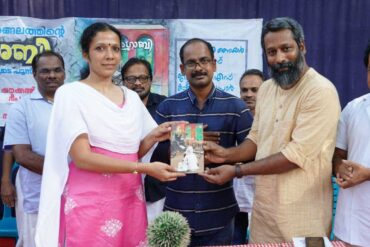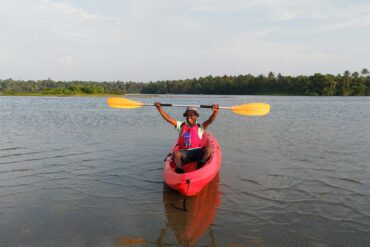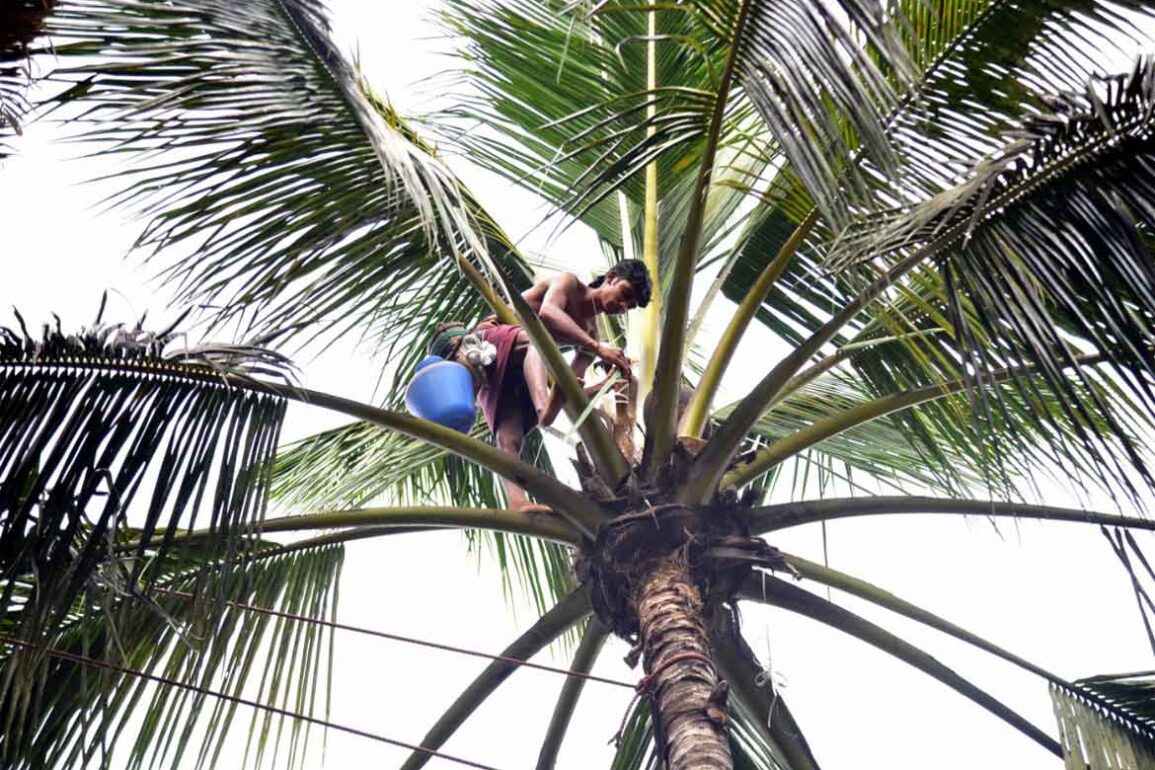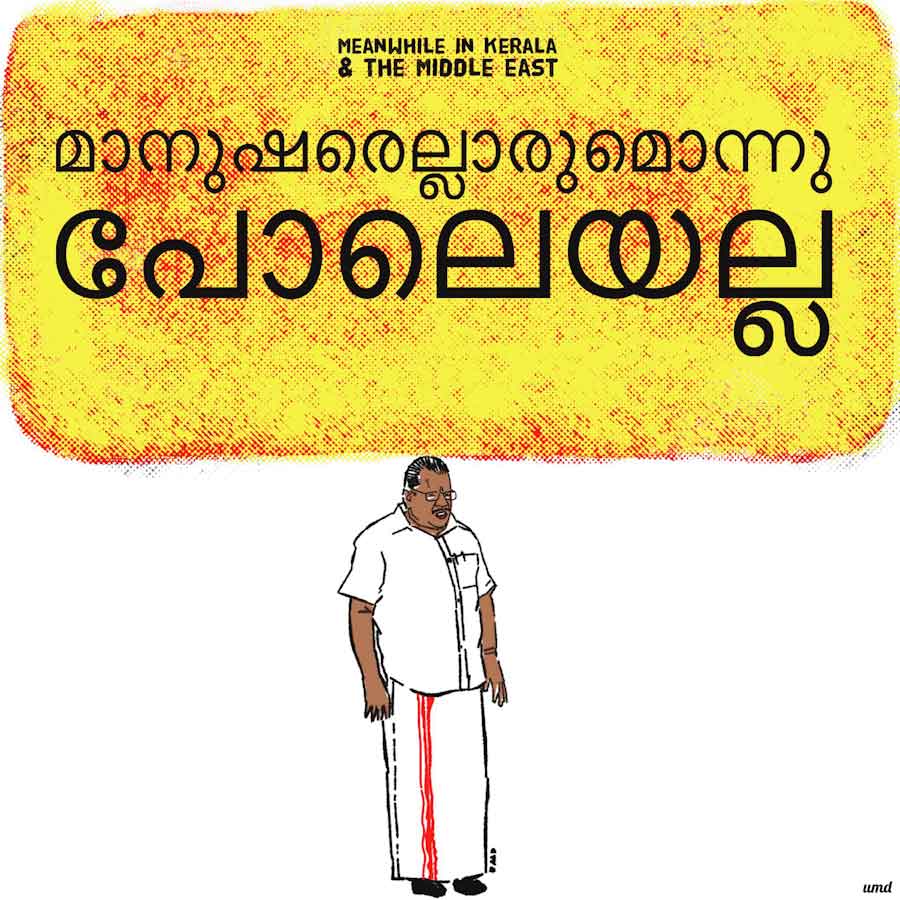Sathish Kumar, aged 42, belongs to Plachimada, Chittur Taluk, Palakkad in Kerala. His schedule starts at 5.30 am every day for the past 12 years. He earned the tapping license after paying a tapper during his retirement. (The tapping licence is either transferred from the parent to children or is bought by paying money to a tapper who already holds a licence.) The toddy production in Chittur Taluk has been serving 12 districts of Kerala due to its abundance.
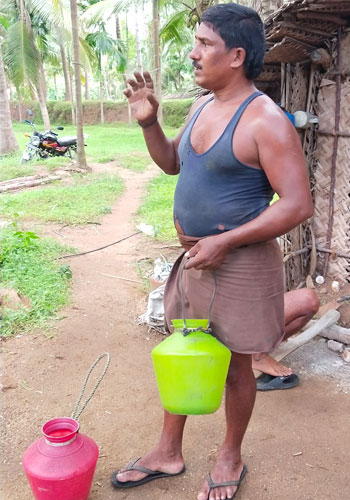
Sathish prepares his tapping knife with quartz powder before he goes for tapping. He makes sure the buffalo bone filled with ghee is in proper health and so is his pot and clay that are essential for toddy tapping. The specially designed knife he owns was bought from Kottayam. The bone was filled with ghee to increase the temperature while tapping and is sealed with M-Seal. The clay required to seal the bunch is bought from the backwaters of Kottayam. No day is perfect for him without tapping as it is the only way to earn bread and butter for his five-member family.
He taps as many as 12 coconut trees a day. As many as 10 days are required for a bunch to produce toddy after its first tapping. The selected bunch is tied with a coconut leaf on the end. Later it is tied with a plastic rope to tighten the bunch. The bunch is tapped and the end of the bunch is cut, from which the toddy is extracted. Clay is applied on the cut to prevent the toddy from re-entering the bunch. Finally the bunch is covered with the clay pot that is used to extract the toddy.
“We tap the bunch thrice a day – 5.30 am, 12.30 pm and around 6 pm. In the morning the bunch is tapped and cut, but in the noon and evening, the bunch is only cut. The toddy can be extracted thrice a day,” says Sathish.
According to Sathish, once a bunch is chosen to extract toddy, the same bunch can be extracted for toddy for four to six months. The toddy extracted from this farm is transported to the shop at Kottayam that has the toddy permit.” By 6.30 am, the vehicles to transport toddy to Kottayam will reach the farm. We estimate the quantity and then deliver toddy,” he says.
Around 2 litres of toddy can be extracted from a tree on an average. It can be less or can even reach up to 5 litres at times. But during the month of January and February, the quantity of toddy will be less due to the change in the direction of the wind, adds Sathish.
Sathish is a licensed employee and is receiving several benefits from the government including PF, gratuity and insurance. But those who do not have a license are left to suffer. “We tap when there is a lack of tappers. The demand is high and the tappers from border districts are unavailable currently. Thus we are asked to tap on a daily wage by the manager of the farm. I have been doing this as a profession for the past nine years and didn’t manage to receive a license. Thus I am not eligible to receive any benefits. There are chances of getting injured by falling from the tree. But we have no insurance benefits,” says Krishan K, a tapper from the Perumatty.
The tappers with permits are eligible to receive PF, gratuity and insurance. The managers who are responsible for extending these benefits hence opt for those without a licence to reduce cost. The tapped toddy is collected by the manager who ensures the delivery of toddy to respective shops.
COVID-19 Lockdown and Toddy availability
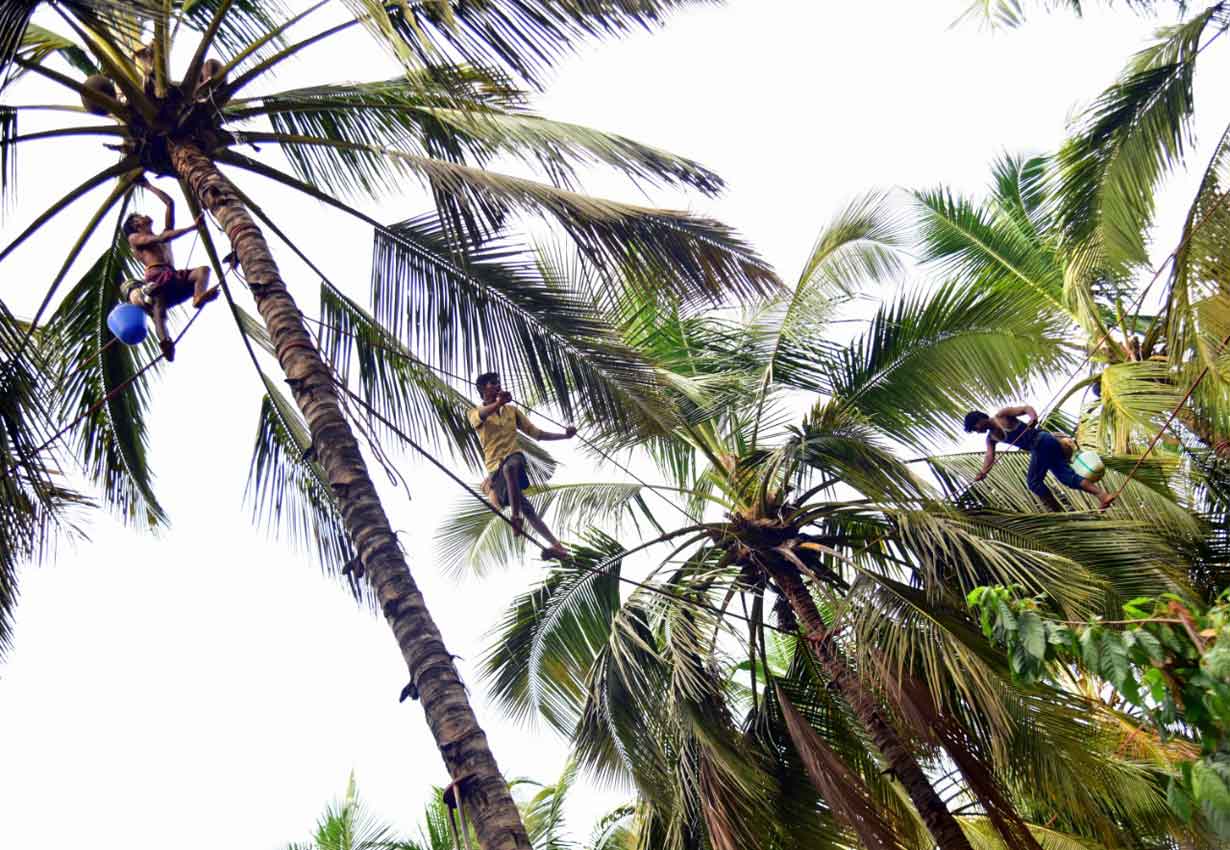
The government lifted the COVID-19 lockdown ban on selling toddy last month. But the availability of toddy remained a major issue. “The tappers from Tamil Nadu and other districts of Kerala went home due to the lockdown and ban on toddy. This resulted in the shortage of tappers in the Taluk,” says K Sivan, Secretary, ‘Swathantra Chethu Tholzhilali Union’, Palakkad.
The demand for toddy increased but the availability of pure toddy was limited and this paved the way for adulteration of toddy. According to various sources, the flow of spirit from Tamil Nadu increased during the lockdown. The spirit addition is mainly done in the farms that are close to the border with the knowledge of the manager. The illegal addition of spirit is mainly done in the places surrounding Pollachi and Gopalapuram,” says Sivan. Also, adulterated toddy is carried from Tamil Nadu in tipper lorries that are used to carry sand and stone.
Adulteration of Toddy
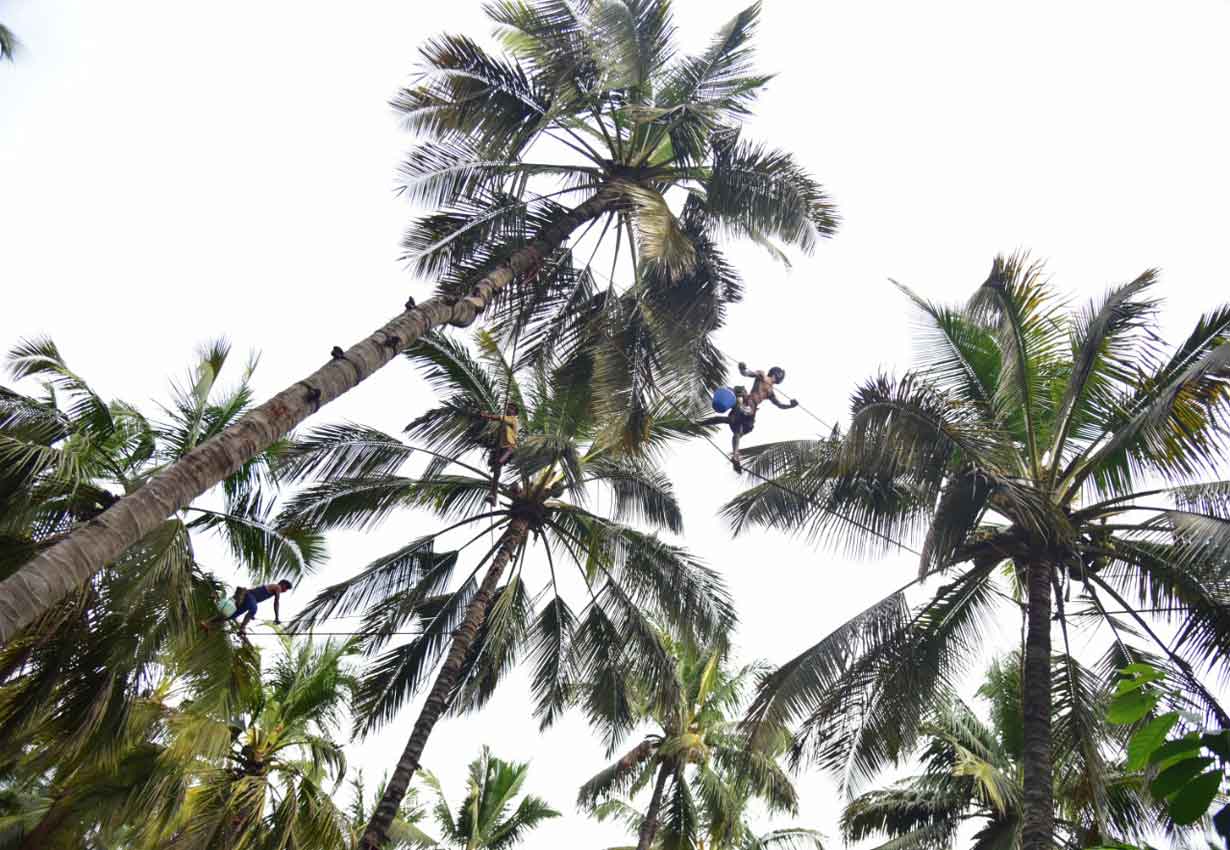
According to sources, other than spirit, the other adulterants including sacrine, which is used to add sweetness to the toddy, is available in sourced from Pollachi and Meenakshipuram. ”The days when winter melons were used as an adulterant are gone. Now powders to improve smell, taste, sweet, colour and sourness is available aplenty at the shops in the borders at Meenakshipuram and Pollachi. The usual buyers can avail it by asking ’power added in toddy’,” said a source on terms of anonymity. In the absence of spirit, ganja is added to increase the kick of toddy.
As many as 5,130 toddy shops are functional in the State, of which only around 3,560 are open. According to sources, around 10 lakh litre of toddy is required on a daily basis. But permit has been given to extract only 4 lakh litres of toddy in Chittur Taluk. “Since there is an evident demand-supply mismatch, the rest of the toddy is adulterated or fake,” says Sivan. According to Excise department documents, the production in the Taluk is 1.5 lakh litres per day. But with the reduced number of tappers, only less than 30,000 litres of toddy is being extracted as of now.
The blame on Excise officers
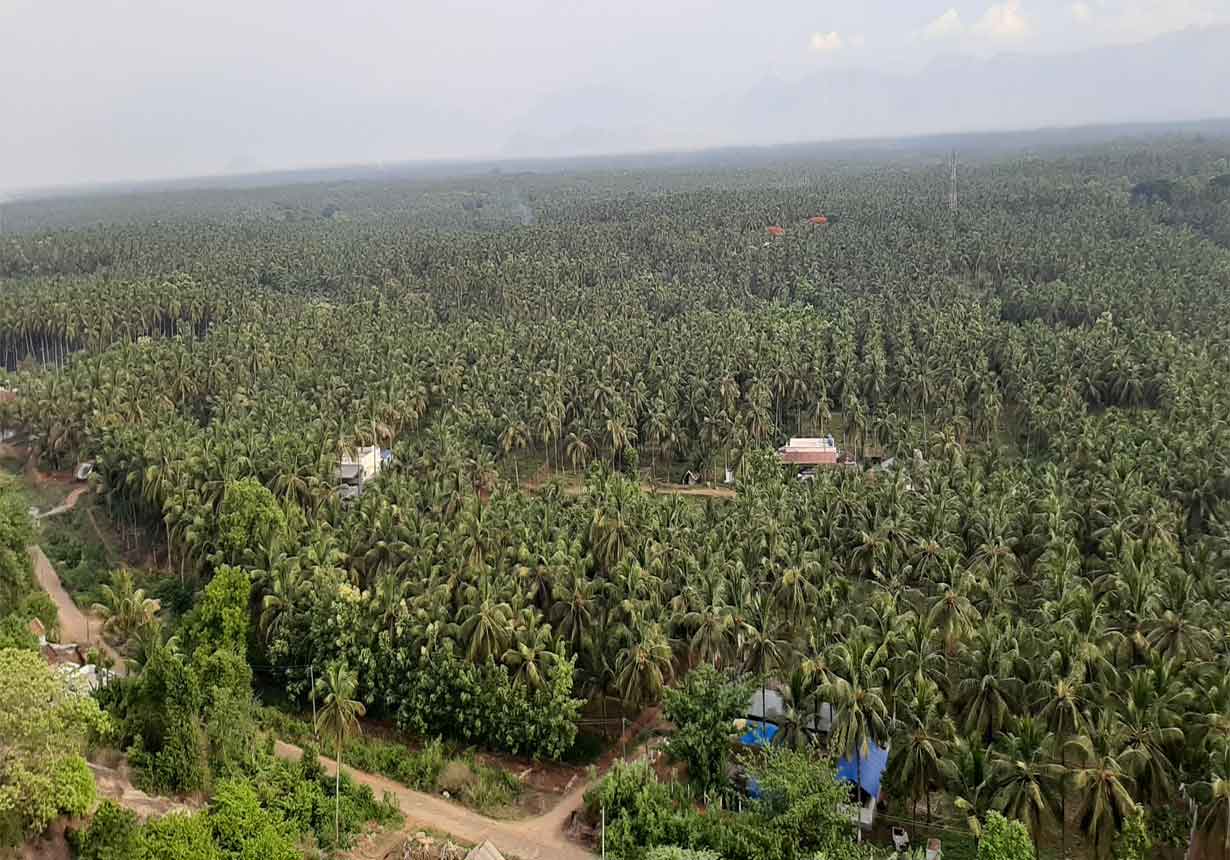
According to those who chair various unions of tappers, the officers of the excise department responsible for ensuring permits are not following the rules. “Permits are given without following the criteria. Thousands of trees are given permits in a single day without following due procedure. Also, the officers are not making sure that the toddy tappers are working on a daily basis and the toddy is extracted according to the permit,” said a tapper on terms of anonymity.
According to the sources, a permit without necessary check-ups costs up to Rs 1 lakh. “The reception of permit goes through four offices including division, range, circle and special squad. For the managers, fake permits are a way of bypassing due process, where they would have to take land for lease and hire tappers normally. Instead, they adulterate toddy with spirit, ganja and tablets,” said a source on terms of anonymity.
However, Excise Inspector, Excise Range office Chittur, C P Madhu said, “We are doing regular check-ups to find the culprits. We will definitely seize adulterants in case we get tip-offs regarding the same. Also, no fake toddy is transported from the Taluk; it is checked at shops after transportation.”
After the checking of permit and making sure only the permitted amount is transferred at Alathur Excise office, the toddy is transported to respective shops to far-flung areas. A litre of toddy costs around Rs 90 in Chittur Taluk and the same costs between Rs 130-150 in other districts of Kerala.

